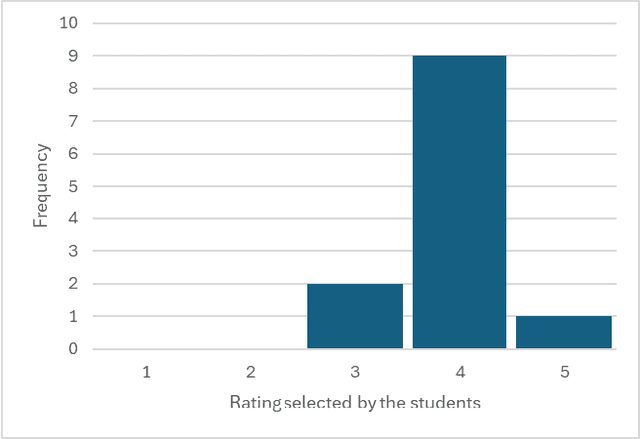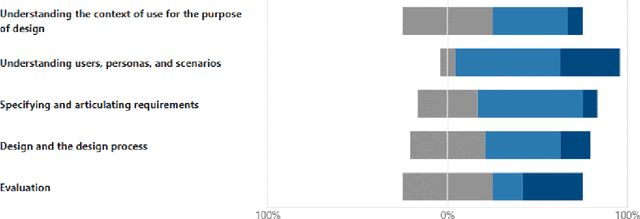Ahmed Kharrufa
Open Lab, School of Computing, Newcastle University
Designing for Self-Regulation in Informal Programming Learning: Insights from a Storytelling-Centric Approach
Jul 30, 2025Abstract:Many people learn programming independently from online resources and often report struggles in achieving their personal learning goals. Learners frequently describe their experiences as isolating and frustrating, challenged by abundant uncertainties, information overload, and distraction, compounded by limited guidance. At the same time, social media serves as a personal space where many engage in diverse self-regulation practices, including help-seeking, using external memory aids (e.g., self-notes), self-reflection, emotion regulation, and self-motivation. For instance, learners often mark achievements and set milestones through their posts. In response, we developed a system consisting of a web platform and browser extensions to support self-regulation online. The design aims to add learner-defined structure to otherwise unstructured experiences and bring meaning to curation and reflection activities by translating them into learning stories with AI-generated feedback. We position storytelling as an integrative approach to design that connects resource curation, reflective and sensemaking practice, and narrative practices learners already use across social platforms. We recruited 15 informal programming learners who are regular social media users to engage with the system in a self-paced manner; participation concluded upon submitting a learning story and survey. We used three quantitative scales and a qualitative survey to examine users' characteristics and perceptions of the system's support for their self-regulation. User feedback suggests the system's viability as a self-regulation aid. Learners particularly valued in-situ reflection, automated story feedback, and video annotation, while other features received mixed views. We highlight perceived benefits, friction points, and design opportunities for future AI-augmented self-regulation tools.
LLMs Integration in Software Engineering Team Projects: Roles, Impact, and a Pedagogical Design Space for AI Tools in Computing Education
Oct 30, 2024



Abstract:This work takes a pedagogical lens to explore the implications of generative AI (GenAI) models and tools, such as ChatGPT and GitHub Copilot, in a semester-long 2nd-year undergraduate Software Engineering Team Project. Qualitative findings from survey (39 students) and interviews (eight students) provide insights into the students' views on the impact of GenAI use on their coding experience, learning, and self-efficacy. Our results address a particular gap in understanding the role and implications of GenAI on teamwork, team-efficacy, and team dynamics. The analysis of the learning aspects is distinguished by the application of learning and pedagogy informed lenses to discuss the data. We propose a preliminary design space for GenAI-based programming learning tools highlighting the importance of considering the roles that GenAI can play during the learning process, the varying support-ability patterns that can be applied to each role, and the importance of supporting transparency in GenAI for team members and students in addition to educators.
The Potential and Implications of Generative AI on HCI Education
May 08, 2024

Abstract:Generative AI (GAI) is impacting teaching and learning directly or indirectly across a range of subjects and disciplines. As educators, we need to understand the potential and limitations of AI in HCI education and ensure our graduating HCI students are aware of the potential and limitations of AI in HCI. In this paper, we report on the main pedagogical insights gained from the inclusion of generative AI into a 10 week undergraduate module. We designed the module to encourage student experimentation with GAI models as part of the design brief requirement and planned practical sessions and discussions. Our insights are based on replies to a survey sent out to the students after completing the module. Our key findings, for HCI educators, report on the use of AI as a persona for developing project ideas and creating resources for design, and AI as a mirror for reflecting students' understanding of key concepts and ideas and highlighting knowledge gaps. We also discuss potential pitfalls that should be considered and the need to assess students' literacies and assumptions of GAIs as pedagogical tools. Finally, we put forward the case for educators to take the opportunities GAI presents as an educational tool and be experimental, creative, and courageous in their practice. We end with a discussion of our findings in relation to the TPACK framework in HCI.
Generative AI Assistants in Software Development Education
Mar 24, 2023Abstract:The software development industry is amid another potentially disruptive paradigm change--adopting the use of generative AI (GAI) assistants for software development. Whilst AI is already used in various areas of software engineering, GAI technologies, such as GitHub Copilot and ChatGPT, have ignited the imaginations (and fears) of many people. Whilst it is unclear how the industry will adopt and adapt to these technologies, the move to integrate these technologies into the wider industry by large software companies, such as Microsoft (GitHub, Bing) and Google (Bard), is a clear indication of intent and direction. We performed exploratory interviews with industry professionals to understand current practices and challenges, which we incorporate into our vision of a future of software development education and make some pedagogical recommendations.
 Add to Chrome
Add to Chrome Add to Firefox
Add to Firefox Add to Edge
Add to Edge